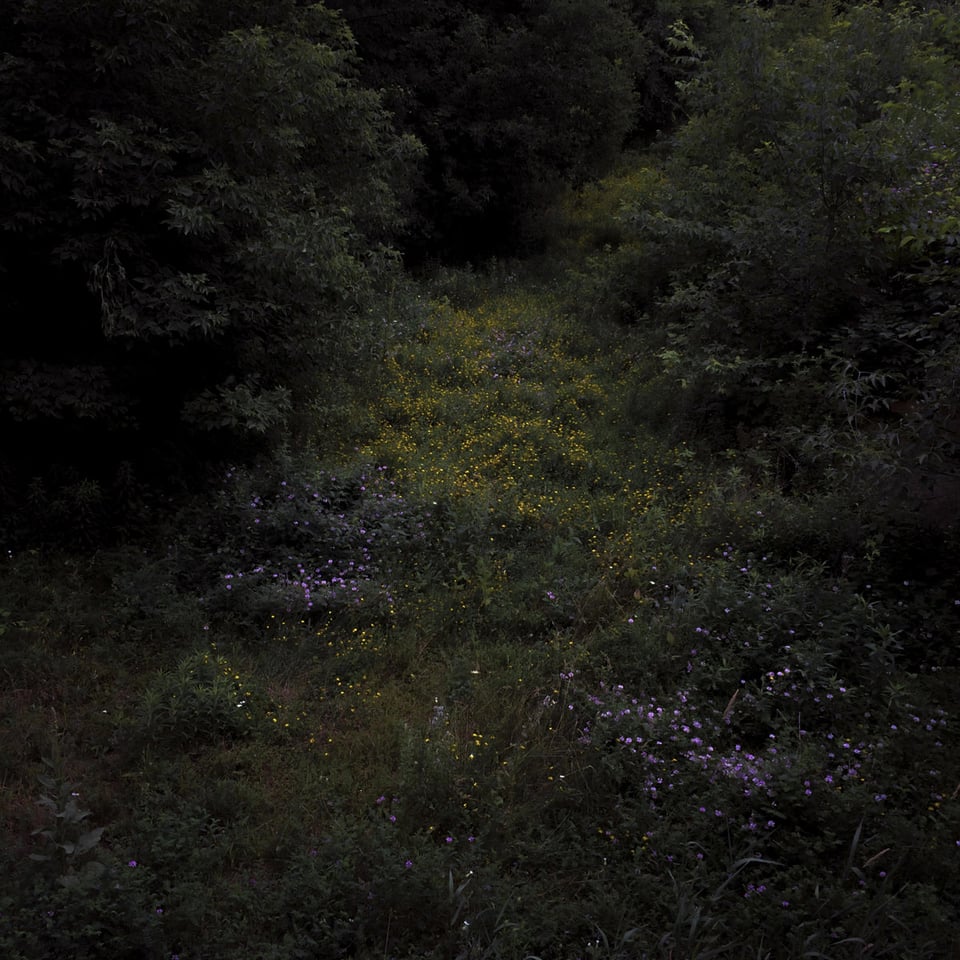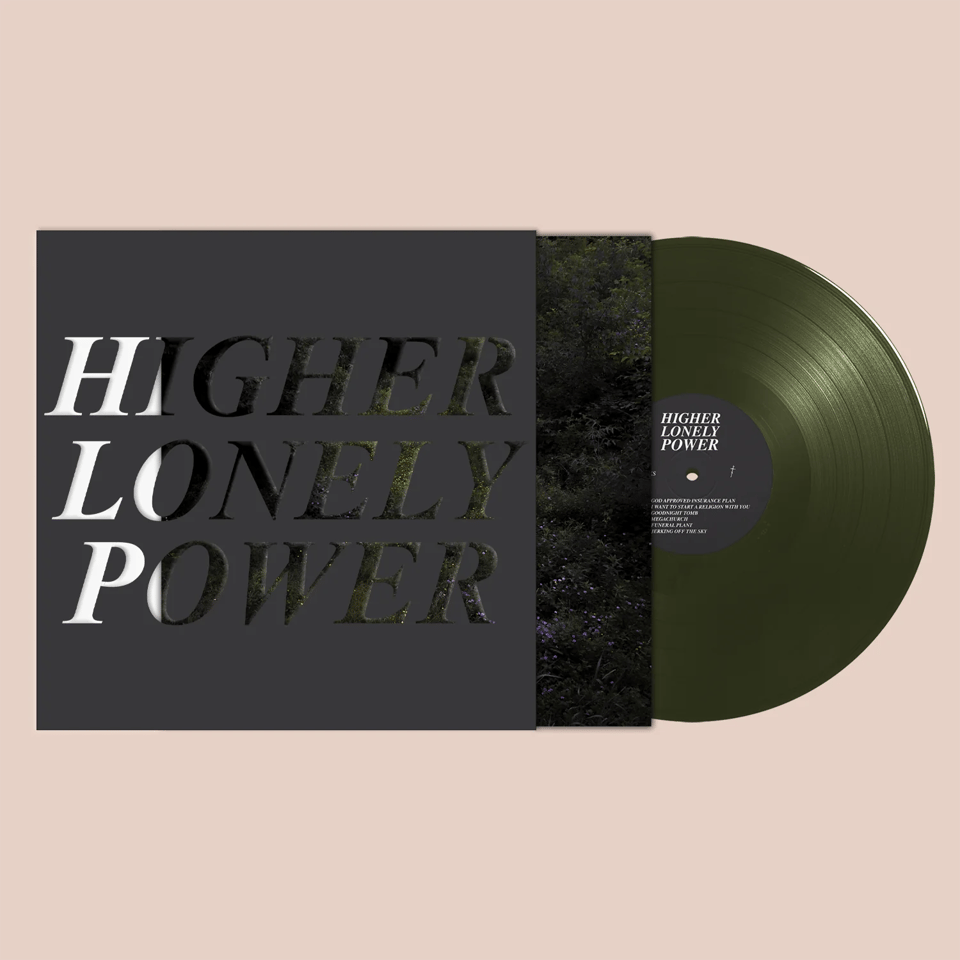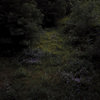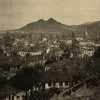#19: not my world

On January 1, the 2010s-era pop-punk band Fireworks released their first album in nearly a decade, the brooding and expansive Higher Lonely Power. Alongside Parannoul’s otherworldly pop opus After the Magic, Higher Lonely Power has been sitting in the back of my head as an early-year list-topper for months. These days, I am trying to think less in terms of ranking and winning and number ones and all that stuff, but you see what tends to happen is people will ask me what my favorite album of the year so far is (or, more likely, what records I’ve liked recently) and if I don’t have a list in my head somewhere I will forget the literally dozens of records that I have poured hours and hours into enjoying over the last six months, and end up answering with some band I’m not even sure I like much.
I have been listening to Higher Lonely Power pretty consistently this year, but I’ve come back to it in a bigger, bolder way last week after the band announced a physical release of the record on Run For Cover. Sometimes I wonder if I love a vinyl mock-up image more than the actual thing itself. Something about a pretty variant. What can I say, I love things and having them in my possession. And when they are green — all bets are off. Boy oh boy. Anyway.

I am repeatedly amazed by Higher Lonely Power, a record I thought — after a three-year series of delays — we might never get to hear. Following the trail of the darker, more cynical tone of their pre-hiatus album Oh, Common Life, Higher Lonely Power does a more thorough job of infusing the snotty, miraculously catchy spirit of their pop-punk roots with a grander, more ambitious aesthetic. Everything here reaches for the rafters — like the lush, cavernous synth-pop of “I Want to Start a Religion With You” or the booming, sinister echo of “Jerking Off the Sky.” Back in the day, it made sense for an album like Gospel to get that pointed, airtight treatment from producer Brian McTernan, pushing the vocals up to the front and making the band sound like perfectly turning gears. These were pop songs, excellent ones, but they had a certain flatness, like the scratched pen drawings that adorned the covers of Gospel and Oh, Common Life.
Higher Lonely Power resists those limited dimensions. Opener “God Approved Insurance Plan” imagines a much louder, more abrasive version of the band, pausing between shouts and screams to lower the tempo, let David Mackinder’s familiar nasal vocals let in some air, bring the drama. “Megachurch” is a full, sweeping post-rock anthem that recasts the band’s penchant for gang vocals (see: textbook buddy anthem “The Wild Bunch”) as a dazzling, mournful choir. “Machines Kept You Alive” turns a lonely, elegiac ballad into an abrupt blitz of glitching sound. Fireworks pull off all of these moves and more on Higher Lonely Power. It’s big, it’s bold, it’s earnest and obvious and maybe even a little bit too much, but it works.
Part of this new maximalism extends to the band’s preoccupation with institutional power, particularly that which comes from a conservative weaponization of Christianity in America. The world of Higher Lonely Power is swarming with reminders of these forces — crosses outside school buildings, babies on billboards, homophobic slogans on bumper stickers. The record functions on the tension between this omnipresent power, supposedly working to connect us all and give us comfort, and the ways in which it pushes us away from each other (“Religious freedom won't be touched / We'll keep the gays from our children / Hurts to know we're on our own / Sad to know we're in control”).
The closest recent analog to Higher Lonely Power is another record that wrangles over similar ironies, the similarly expansive album from The World is a Beautiful Place, Illusory Walls. Here, too, a long-standing emo band broadens their scope and directs their attention, their grief, really, toward the ultra-powerful mechanisms that have worked, repeatedly, to engender misery. This comparison works best perhaps if you, like me, include “Demitasse,” the 2019 single that originally announced Fireworks’s return and from which the title of the record is derived, in your analysis of Higher Lonely Power. “Demitasse” does not appear on the record proper, but the protracted, brooding build up of this song, leading to a rapturous finale, feels of a kind with the (much longer) grim victory laps of songs like “Infinite Josh.” When I listen to Higher Lonely Power, I tack “Demitasse” onto the beginning as a kind of prologue, a perfect indicator of the heightened stakes at play.
The best songs on Higher Lonely Power, though, are the ones that seamlessly meld the band’s old sensibilities with their new ambitions. “Funeral Plant” wouldn’t sound out of place on Oh, Common Life if it weren’t for the layers and layers of organ-approximating synths peeking out of the edges of the band’s traditionally cheeky guitar riffs. The huge, show-stopping chorus of “Blood in the Milk” feels like a classic Fireworks earworm, but it’s delivered by Mackinder with a dire theatricality that breaks the confines of their formerly summery pop-punk sensibilities.
Both of these songs turn toward past versions of themselves. “Blood in the Milk” considers the way our world has grown, terrifyingly, to fit our youthful cynicism (“Wokе up afraid to die / When we used to think it was funny”). “Funeral Plant” thrives on the same spirit of isolation and discontent that has become stereotypical of pop-punk (“Prayed to be like everyone else / They found drugs or Jesus / And I just had myself / Does anyone really feel anything anymore?”) A bewildered coda, however, disintegrates the facade, tries to get at the roots of these deeply embedded ill-feelings and the way that we valued them — “What was it about me back then? If you want I can try to be it again.”
This is the key to my fascination with Higher Lonely Power, I think, the way that Fireworks are always circling back on themselves, trying to reconcile the people they used to be with the world they find themselves in now, and giving this self-reflection an incredible, almost mystical energy. When Oh, Common Life came out my junior year of college, I remember walking around campus at night listening to songs like “Glowing Crosses” and “Run, Brother, Run,” struck by the notion at the core of these songs that something wildly important was out of place, like they were rooting through the darkness trying to find something that might knock the world back on its axis. It was a sound that resonated with me, the sound of an uncertain strangeness in your gut when the day was over, when you thought that everyone else was back in their rooms, sleeping soundly.
The profound impact that “Woods II” has had on me is not that of a light shining on the problem, though. It’s that a song can make me remember that feeling so viscerally, that it can do so through a prism of memory and age that feels ever more confounding. These are the kinds of bouncy riffs I remember, this is a kind of cyclical hook I can remember, but this is an extension, not a replay. Something about the fractured imagery, leaving things hanging (“Mosquitoes pull blood through my clothes / Just like pavement did to yours”), about a simple, repetitive resistance (“It's not my world, not my world / It always just felt forced to me”). Something about “Woods II,” ostensibly a sequel to the Oh, Common Life track “Woods,” makes it feel like we’re only getting stray corners of a much bigger story, and it’s a story that — I don’t know if it’s the bluesy guitars a la “Cath…” or the way the floor falls out from under you for that string-section finale — makes some kind of emotional lightning bolt go off in my brain. It’s an economic little wonder of a song, my favorite I’ve heard so far this year.
But, although I might like it, I don’t think I’d love it or the rest of Higher Lonely Power quite like this if I hadn’t fallen for Gospel and Oh, Common Life as a teenager. I don’t think it’s quite nostalgia that does this — it feels more complicated than that. It’s like I needed those neural wires to be set up in my brain all those years ago for a record like this to land with me. Listening to Higher Lonely Power sometimes feels like I’ve been plopped in the same dark forest I explored a decade ago, but I’ve somehow found myself deeper than I ever managed to venture before — there’s so much more to find the further you go, but the light seems to get dimmer and dimmer all the while. Still, when the moonlight comes through, there’s that intoxicating feeling that you’ve known where you’ve been going the whole time. 
Here’s a few more songs for your consideration, listen along on Spotify or Apple Music.
Hurry — “Beggin’ For You”
The new Hurry album is a total joy — to me, this is the pinnacle of power-pop. Last night I had a little skip in my step while I listened to this while walking over to a friend’s apartment in the rain. I somehow skipped right into a stray, unmarked bit of wet cement, leaving a deep footprint in the sidewalk. Not my fault. Listen to Hurry.
Ogbert the Nerd — “Bike Cops”
It feels like so long since I Don’t Hate You came out and “Bike Cops” gracefully picks up where they left off. This is spiky, shouty, rough emo rock at its finest. Makes me wanna jump. Also: horns!
Bright Eyes — “Blue Angels Air Show (Companion Version)”
I love these companion EPs, they feel like just the perfect little treat each time. The Noise Floor companion EP is probably my favorite of the bunch — I think of Noise Floor as one of the all-time great compilations, like Louder Than Bombs-level, so it’s fun to see some of these underappreciated songs get a little attention.
Vagabon — “Can I Talk My Shit?”
Vagabon’s evolution is so amazing to watch — 2017’s Infinite Worlds is an incredible but sort of by-the-book emo/indie rock debut; to see her making such inventive, polished, and perfectly executed pop music is so exciting.
KC Rae — “Bathroom Floor”
Another great single from the Now, Now frontperson. The guitars on this one make my brain think slowcore and I love that dynamic for her.
Feeble Little Horse — “Heavy Water”
Speaking of guitars. I haven’t stopped thinking about those punctuating riffs for days and days. What a cool band.
Fiddlehead — “Sullenboy”
I have liked but not loved the last two Fiddlehead albums but this new one is sticking with me. Great on the bike.
Home Is Where — “Lily Pad Pupils”
When I originally heard this song, I texted my friend Mel and said it was like “watching Sufjan’s “Seven Swans” transform into Modest Mouse’s “Teeth Like God’s Shoeshine.” Incredible song.
Florry — “Drunk and High”
Philly country rock that slaps.
Been working on some new fiction for you. More on that soon if that's your thing. See you later.

My name is Jordy Walsh, and I’m a writer based in Philadelphia. I Keep a Diary is a newsletter about music, books, and writing. You can follow me on Twitter for more thoughts on all that stuff.

